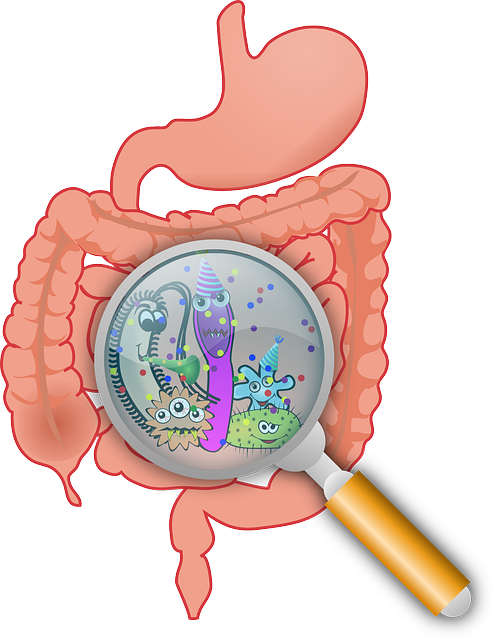This is not the best topic to read about, but very important to know what it is and how to treat it.
Invasive candidiasis is an infection caused by a yeast (a type of fungus) called Candida. Unlike Candida infections in the mouth and throat (also called “thrush”) or vaginal “yeast infections,” invasive candidiasis is a serious infection that can affect the blood, heart, brain, eyes, bones, and other parts of the body.
Candidiasis affects up to 80% of the Western world – and you may not even know you have it!
This fungus and the single-cell organism is actually useful to humans…in the right amount. It feeds off excess sugar in our bodies. Once the sugar goes down, it naturally dies off.
Under normal conditions, Candida is harmless. The bacteria living on and in the body combined with the efforts of the immune system help keep Candida populations under control. However, a person may develop candidiasis if their good bacteria are suppressed or their immune system is weakened. Some common causes of candidiasis include:
- The overuse of antibiotics. Anti = against, Bio = life. When you take an antibiotic, not only does it kill off the bad guys, the good guys get wiped out too. With the good bacteria removed, candida has an ideal climate to grow in. Taking a probiotic in conjunction with your antibiotic can help prevent that.
- A diet high in sugar & processed foods. When broken down, those carb-heavy foods become the perfect fuel for yeast to grow, multiply and thrive off of. Eating these foods also depletes the immune system, increases inflammation and contributes to the overall toxic load our systems have to handle.
- Autoimmune conditions, such as Irritable Bowel Syndrome or Hashimoto’s. The two conditions (candida & autoimmunity) actually go hand-in-hand. Candida can contribute to a condition known as leaky gut – essentially, this is when the lining of your intestinal wall becomes damaged and permeable. Not only does this increase inflammation, but it also wears down the immune system and makes you more susceptible to chronic illness.
The problem starts when you have a diet high in fat!
Fat has a horrible tendency to, unfortunately, coat cells. This presents a HUGE problem for the necessary GLUCOSE to get into the cell to feed it and the billions of other cells that require glucose for energy.
All this extra sugar now with nowhere to go…
Candida microbes are a normal part of life. They are there to assist in getting rid of excess sugar in the blood (especially when the pancreas and adrenal glands are failing) – a life-saving function. On a healthy low-fat diet, when sugar levels increase in the blood, they multiply and consume the excess sugar and then die off. You cannot eliminate candida overgrowth until you address the high-fat diet and Adrenal fatigue. The Adrenal glands work as a backup to the pancreas (if it is fatigued or overworked from trying to continually lower sugar levels due to a high-fat diet). It does this by producing adrenaline (epinephrine hormone) which stimulates the pancreas to increase insulin production (to maintain healthy sugar levels). This was only meant for emergencies – fight or flight. But due to bad lifestyle and diet choices, it is now a daily “function”.
The only way to eliminate a Candida outbreak is to switch to a whole-food, low-fat and plant-based diet. Once the fat levels decrease in the blood, the glucose (from fruit) can be used properly in the body and the excess candida microbes will die off. This may take up to 3 months.
It is as simple as that.
NB: Please note that with all lifestyle changes, there will be some detox symptoms that you may experience.
The full list of possible Candida symptoms:
- Bad breath
- Bloating, belching, intestinal gas, and/or abdominal pain
- Constipation or diarrhea
- Endometriosis / infertility
- Fatigue and chronic fatigue
- Frequent mood swings
- Impotence
- Insomnia
- Muscle aches, weakness, or paralysis
- Pain and/or swelling in joints
- Poor memory / foggy brain
- Prostatitis
- Troublesome vaginal itching, burning, or discharge
NB: Please note that with all lifestyle changes, there will be some detox symptoms that you may experience.
Please note that these symptoms could be associated with many other issues, so they must be properly diagnosed by a qualified medical person.
As with any dietary change, please make sure that you have notified your family doctor.
If you need some guidance with food choices and lifestyles changes to improve your health, please visit my SERVICES page.
* https://www.cdc.gov/fungal/diseases/candidiasis/invasive/index.html
* https://www.medicalnewstoday.com/articles/candida-overgrowth
* https://www.drlanawellness.com/new-blog/2019/8/5/candida
* https://katarinajaneckova.com/read-this-next-leaky-gut-candida/

No responses yet